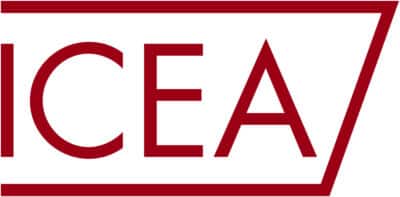
The Master in Strategic Environmental Management, now in its 22nd edition, is at the top of the environmental management training courses offer in Italy, and, now more than ever, it represents an important launch pad to find a job or improve one’s position within the green economy sector, with good career opportunities.
Born out of the experience of the CESQA (Centro Studi Qualità Ambiente) research group, founded by Prof. Antonio Scipioni, the Master is also supported by the Ministry for the Environment and Energy Security.
The Master in Strategic Environmental Management provides cross-sector training, and is divided into 7 modules, 2 of which are single post-graduate courses. It is addressed to graduates from all disciplines, and it provides up to 4 certificates of attendance.
Newly-graduates and people outside the labour market may acquire skills in the environmental management field, very hard to reach in a traditional university course, through lectures and internships. While workers will boost their professional growth and their career, and may even consider a change of occupational field. The week-end formula and blended mode will limit work absences.
The Master trains multifactorial professionals in the environmental management field, capable of combining the latest methods, analysis and measuring techniques concerning environmental issues, with governance aspects, to create scale economies and implement a strategic environmental management and circular economy actions.
The Master in Strategic Environmental Management is addressed to both newly-graduates and people already working and looking for further qualification, with suitable competences to develop and implement Environmental Management Systems, with a focus on lifecycle analysis and environmental footprint. Moreover, at the end of the course, students will be able to identify and interpret national and international regulatory requirements, thus ensuring compliance with sustainability regulations and standards, including those of the Corporate Sustainability Reporting Directive (CSRD). Professionals will be able to conduct audits for Environmental Management Systems and Energy Management Systems, by assessing the environmental performance and promoting continuous improvement measures.
The educational approach encompasses also circular economy principles, thus promoting the development of innovative solutions to reduce waste and enhance resources, and providing the bases top monitor climate-affecting emissions and implement sustainability management systems.
The highly qualified professionals resulting from this course may find work in:
- Sustainability teams of companies and organizations;
- Technical roles in Public Administrations;
- Environmental consultancy for public and private enterprises.
The Master in Strategic Environmental Management is divided into 7 modules. The Master includes also 3 single course with final exam and certificate of attendance (exams and certificates are not mandatory, and students may decide not to take the exam for the single course):
Module 1 – CIRCULARITY AND SUSTAINABILITY
Purpose of this module is providing students with a different background with common theoretical, conceptual and lexical fundamentals, necessary to understand circular economy as an alternative to the traditional linear economy model. It also develops topics such as: sustainable community management, non-financial reporting, sustainability reports, green economy and green bonds.
Module 2- GREEN LAWS, TECHNIQUES AND TECHNOLOGIES
Analysis of European and national laws concerning the environment, with particular focus on the environmental matrices.
Module 3 – ENVIRONMENTAL MANAGEMENT SYSTEMS
This module analyses the regulatory, accreditation, and certification process, and the requirements set forth in UNI EN ISO 14001 and in the European Regulation EMAS, to implement an environmental management system (context analysis, stakeholders needs and expectations, risk analysis-based approach, lifecycle perspective, compliance obligations, etc.).
Module 4 – ENVIRONMENTAL AUDIT – POST-GRADUATE COURSE FOR LEAD ENVIRONMENTAL AUDITOR (40 HOURS)
This course provides specific training on how to plan and conduct inspections, on the environmental management systems of an organization, and on how to present the results, according to Standard UNI EN ISO 19011.
Module 5 – LIFE CYCLE MANAGEMENT
Focus of this module is the lifecycle approach to evaluate the environmental impact of products and organizations. The main topics include: EU integrated product policy, Life Cycle Assessment method, Green Public Procurement, green labels, and EcoLabel Regulation.
Module 6 – FOOTPRINTING
In line with the European Product Environmental Footprint policy, this module provides an insight on carbon footprint and water footprint, applied to products and organizations, and on future footprinting applications.
Module 7 – ENERGY MANAGEMENT SYSTEMS AUDITING – Energy Management Systems Lead Auditor Course
The course provides specialised training on the planning and conducting of audits for an organisation’s energy management systems and the presentation of results in accordance with UNI EN ISO 50001.
The faculty includes professors from the University of Padua, from other Italian and European universities, experts from all over the Country, working in environmental organizations, professors from institutions and organizations, such as the Ministry for the Environment and Energy Safety, ACCREDIA, UNI, ISPRA, ARPA Veneto, and certification bodies.
Those institutions support the Master and represent an historically excellent network. They are complemented by a solid network of companies and enterprises that offer internships to students.
The Master issues up to 5 certificates of attendance, after passing the related exams:
- Post-Graduate Academic Master Degree, issued by the University of Padua.
- EMAS Environmental Consultant and Auditor, for the PA sector, issued by the Scuola Nazionale EMAS of Padua, recognized by the Ecoaudit -Ecolabel Committee (with registration in the relevant registries, filed by ISPRA).
EMAS trains professional figures (internal auditors and consultants) to assist and support PA in the EMAS registration process. - Certificate of attendance (after passing the related exam): Environmental Management System Auditor/Lead Auditor (UNI EN ISO 14001 and EMAS Regulation).
- Certificate of attendance (after passing the related exam): Energy Management System Auditor/Lead Auditor (UNI EN ISO 50001).
- Certificate as Energy Management Expert, preparatory and useful to obtain the EME qualification.
The Master is in the process of accreditation to meet the training criteria of UNI/PdR 109 related to the role of Sustainability Manager. Moreover, an open badge will be issued, to attest the knowledge, soft skills and technical competences acquired.
The Master also grants 30 CFP (Professional Training Credits) for engineers, in partnership with the Order of Engineers of Padua.
The Master in Strategic Environmental Management is a historical course, renovated at every edition. Indeed, every year, the organizing body, CESQA (Centro Studi Qualità e Ambiente) of the University of Padua conducts a labour market analysis to assess the most requested professional figures, and their training requirements. Active internationally in scientific research applied to the environmental sustainability, life cycle assessment, and carbon & water footprint sectors, it manages several sustainable management projects, and it represents Italy at panel discussions on regulatory updates and on the new standards.
The general ranking of merit will be published on the Italian page of this Master according to the timing provided in the Call.
Information
FAQ
The Master in Strategic Environmental Management lasts one year, and it comprises:
- 296 hours of lectures (in classroom/remotely – Zoom)
- 40 hours of online classes (independent work by students on Moodle)
- 450 hours of internship and/or project work.
For the academic year 2024/25, the course will be held in blended mode, to facilitate out-of-town students who will be able to follow the lessons remotely, and also the students who wish to grasp the opportunities born out of attending the lessons in person, and exchanging ideas and knowledge promoted by a classroom environment. Some of the lessons will be held only in classroom, as they include group or in-person activities.
The Master includes a 450-hour internship to be completed in a company. The Master Organization will help students to find a company for their internship, through the broad network built over its 21 editions.
The Master can be attended also by working students, as the lessons are held on Friday (full day) and on Saturday morning. Working students can complete a project work in place of the internship period. Moreover, the mandatory attendance is 70% of the lectures.
The Master students will take two intermediate written exams in February and July to test their knowledge. The final exam (oral) will be held in September, and students will present their final internship reports or project works. Taking and passing these exams is mandatory to obtain the Master Diploma. The three single post-graduate courses entail specific exams held by the organizing institutions, mandatory to obtain the related certificates of attendance.

